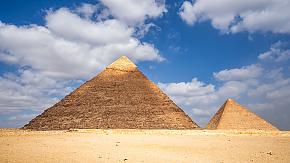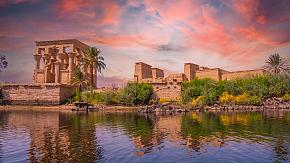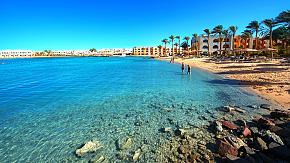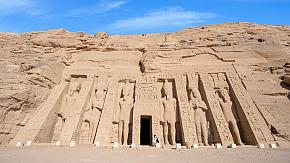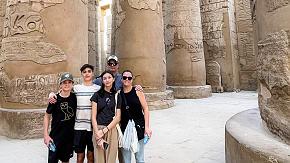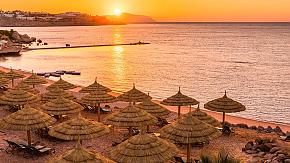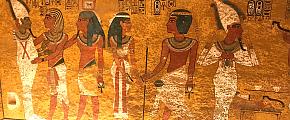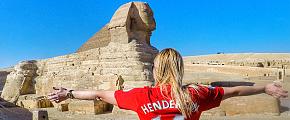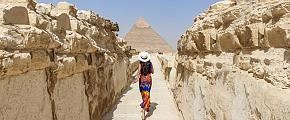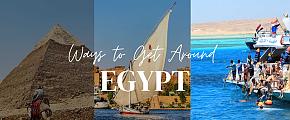10 Things Not to Do in Egypt
Lasting for thousands of years, Egypt is a dream destination with countless heritages to see. However, it is also a place where customs, laws, and travel conditions are very different from what many visitors are used to. A simple mistake can cause frustration, embarrassment, or even legal trouble. Here are 10 things NOT to do in Egypt, along with practical tips to keep your trip smooth and enjoyable.
Don't Take A Drone
Bringing a drone into Egypt is strictly prohibited without special government permission. If found in your luggage, customs will confiscate it upon arrival, and attempting to fly with one could result in heavy fines or more serious consequences.
If Egypt is just one stop on your multi-country journey and you are traveling with a drone, you have two options:
- Mail it home before entering Egypt to avoid any issues at the border.
- Declare it honestly upon arrival. Customs will confiscate it and may store it at the airport for you until departure. In most cases, you will need to pay a fine or storage fee before reclaiming it when you leave Egypt.
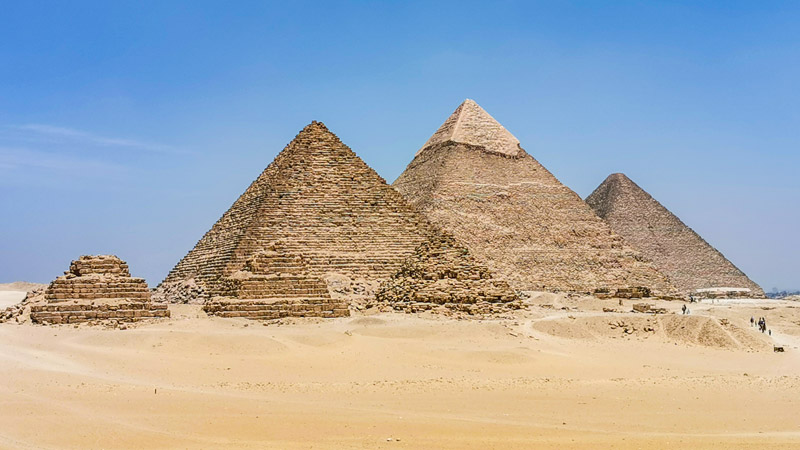 Panoramic View of Giza Pyramids
Panoramic View of Giza Pyramids
Don't Book Illegal Hotels
Egypt welcomes thousands of visitors every year, so accommodation options are plentiful. But here's an important tip: not every hotel or guesthouse you find online is officially licensed. It can be tempting to go for the cheapest deal or a place with a unique view, but sometimes those options come with risks.
Many apartments or budget stays operate without the proper government permits. This can mean poor safety standards, no official guest registration, and little to no support if problems arise. In fact, in the Giza area, especially around Nazlet El Seman or Sphinx Road, you will find plenty of such properties. They may advertise unbeatable views of the Giza Pyramids, but staying there can bring unwanted trouble, even daily visits from tourist police.
For a safe and smooth experience, always choose licensed hotels or reputable accommodations. The easiest way is to check recent reviews on trusted platforms like TripAdvisor or simply ask your tour operator for reliable recommendations.
Don't Believe FREE Service
At many tourist sites in Egypt, you may hear friendly offers like "No money, free!" Whether it is someone giving directions, taking your photo, guiding you toward an attraction, or even handing you a small "gift" like a headscarf. Don't be fooled. In reality, there is rarely such a thing as a free service in Egypt. Once you accept, payment or a tip will almost always be expected.
To avoid uncomfortable situations, the best way is to smile and respond politely but firmly with "La, shukran" (No, thank you), and continue on your way - unless you are prepared to pay for it.
Don't Photograph Police or Military Personnel
Be mindful when taking photos in Egypt. It is not because of thieves, but because of the police. You will see officers almost everywhere: on the streets, in markets, and at tourist sites, keeping guard over both locals and visitors.
Egypt enforces strict rules against photographing anything related to the military or security. This includes police officers, checkpoints, stations, and even certain bridges.
If you are taking photos of them, you may be stopped, and simply deleting a photo may not always resolve the situation. To avoid getting stuck in trouble, keep your camera focused on what you came to see, like the ancient temples and beautiful scenery. Just never point it at security personnel or sensitive sites.
As long as you follow these simple rules, photography in Egypt is safe and incredibly rewarding.
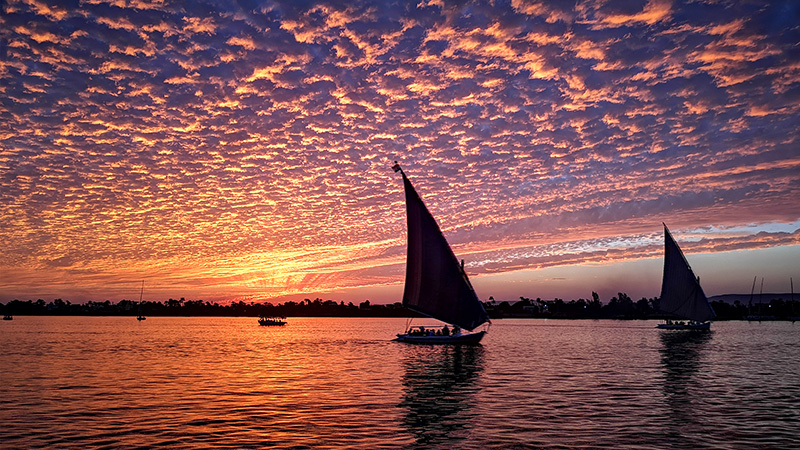 Beautiful Sunset on the Nile River
Beautiful Sunset on the Nile River
Don't Kiss in Public Areas in Egypt
Egypt is a wonderfully romantic place to explore together, but remember it's also a conservative country. While a quick kiss might feel natural for honeymooners or couples used to Western norms, in Egypt it's better to keep affection private. Public displays, especially in cities like Cairo or Luxor, can draw unwanted attention or make locals uncomfortable. A quick rule: act as locals do in public.
Resorts and beach destinations in Egypt tend to be more relaxed, so you will have plenty of chances to share those sweet moments without worry. Think of it as saving your romance for the right setting, like a sunrise over the Red Sea, a candlelit dinner, or the privacy of your hotel.
Don't Try Driving By Yourself in Egypt
Traffic in Egypt is chaotic, even for locals. Lanes are loosely followed, horns are constant, and pedestrians often step into the road without warning. For visitors unfamiliar with the rhythm of Egyptian driving, renting a car can quickly turn stressful or dangerous.
Instead of driving yourself, arrange private transfers or hire a driver through your tour company. It is more comfortable, safer, and gives you time to enjoy the scenery without worrying about unpredictable traffic.
Don't Touch Food With Your Left Hand
Egyptian dining follows traditional customs, and one of the most important is avoiding the left hand when eating. In local culture, the left hand is considered unclean, so always use your right hand when handling food, passing items, or accepting something from someone.
If you are at a communal meal or enjoying street food, this small gesture of respect goes a long way. Locals will notice your effort to follow customs, and it often earns warmer smiles and friendlier service.
Don't Touch or Climb up to Historical Artifacts
The ancient monuments of Egypt are breathtaking, but they are also fragile. Even light touching causes long-term damage to stone carvings that have survived thousands of years.
Except for the certain trail to go inside the pyramids, climbing on pyramids or touching carvings is not only disrespectful but also strictly forbidden by law. Guards are present at all major sites, and violators can face heavy fines. So the best way to experience Egypt's ancient wonders is with your eyes and camera (turn off the flash). You can admire them up close, but never with your hands.
Don't Visit Remote Areas or Its Border
Egypt is generally safe for travelers, especially in popular tourist areas such as Cairo, Luxor, Aswan, Alexandria, and the Red Sea resorts. However, it's best to avoid border regions, remote deserts, and parts of the Sinai Peninsula (particularly Middle and North Sinai). These areas not only require special permits but can also pose security concerns.
If you'd like to venture into lesser-known regions, the safest way is to arrange it through a reliable travel agency that can handle permits and ensure your trip runs smoothly.
Don't Drink Tap Water
While tap water in Egypt is technically treated, it isn't safe for visitors to drink. Most locals rely on bottled or filtered water, and travelers should do the same to avoid stomach upsets.
Always buy sealed bottled water for drinking and brushing your teeth. Ice cubes are often made from tap water, so skip them unless you're in a high-end hotel or restaurant. It is a small precaution that can save you from days of discomfort.
What Our Clients Say
Explore the latest verified reviews of Odynovo's travel services on Tripadvisor, Google, Trustpilot, Product Review and more trusted platforms.

